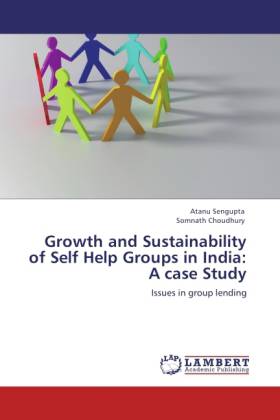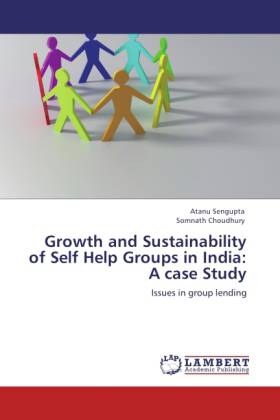
- Afhalen na 1 uur in een winkel met voorraad
- Gratis thuislevering in België vanaf € 30
- Ruim aanbod met 7 miljoen producten
- Afhalen na 1 uur in een winkel met voorraad
- Gratis thuislevering in België vanaf € 30
- Ruim aanbod met 7 miljoen producten
Zoeken
Growth and Sustainability of Self Help Groups in India
A Case Study
Atanu Sengupta, Somnath Choudhury
Paperback | Engels
€ 48,45
+ 96 punten
Omschrijving
People are poor since they have low skill. They are low skilled since they are poor. To break this vicious cycle, it necessary to empower people so that they can gain access to the capital market. The group lending is an important idea that helps to break the shackle. Generally such group formation are voluntary. In India, however, there is an active public support system to enhance, monitor and further this system. In our study, we try to understand the efficacy of the public system in fostering this job. Most of the standard studies in this field are oriented towards the individuals who form group. In our case, the focus is different. We try to see how far the public authorities are able to fulfill their job. Using data from a poor district in India, we study growth and sustainability of Self Help Groups . We find that the public system is not very effective in provision of the necessary impetus towards the group formation. The links are weak and often non-existent. A radical shift in the standard practice is highly required.
Specificaties
Betrokkenen
- Auteur(s):
- Uitgeverij:
Inhoud
- Aantal bladzijden:
- 100
- Taal:
- Engels
Eigenschappen
- Productcode (EAN):
- 9783847331193
- Verschijningsdatum:
- 28/12/2011
- Uitvoering:
- Paperback
- Formaat:
- Trade paperback (VS)
- Afmetingen:
- 152 mm x 229 mm
- Gewicht:
- 158 g

Alleen bij Standaard Boekhandel
+ 96 punten op je klantenkaart van Standaard Boekhandel
Beoordelingen
We publiceren alleen reviews die voldoen aan de voorwaarden voor reviews. Bekijk onze voorwaarden voor reviews.











